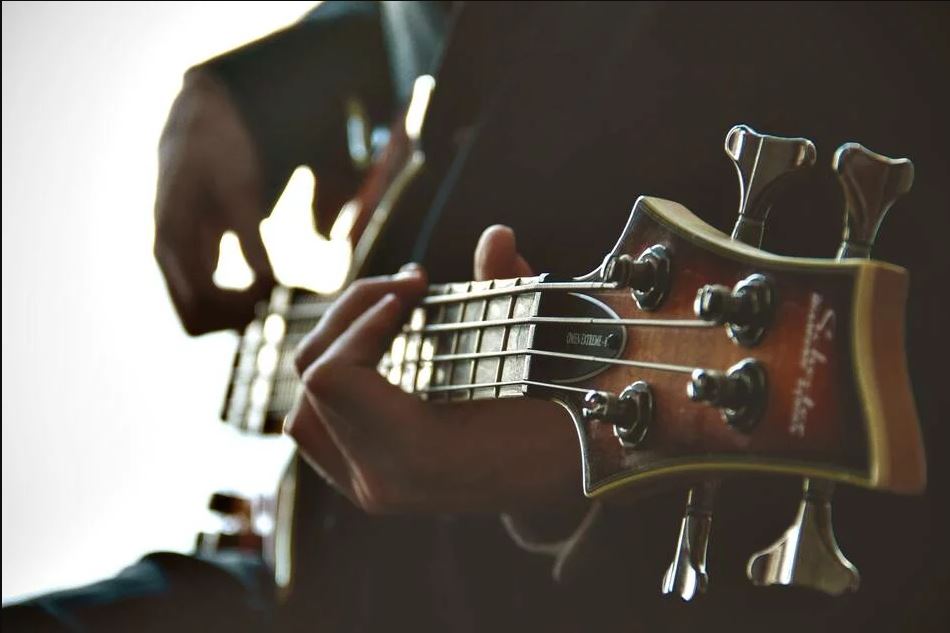
Spanning all genres and generations, narrowing down the 25 best bass players of all time is never easy. We gave it a go.

25. Lemmy Kilmister
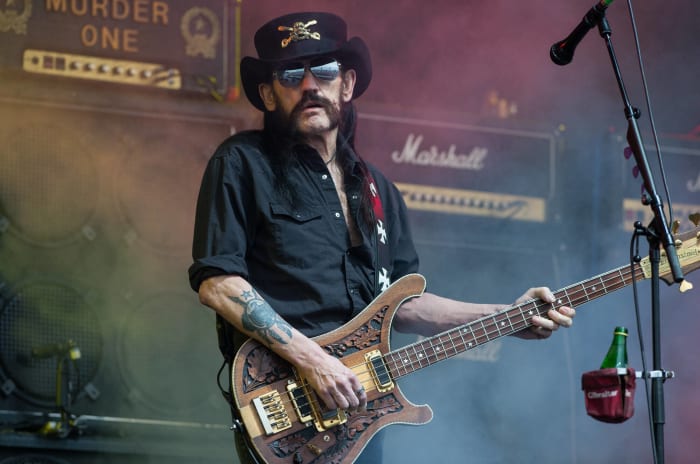
Another iconic figure in the rock world and one of the most influential heavy metal figures of all time. With Lemmy, it was always more about the man than the musician. And that should not be considered a slight on his professional work. One of the true characters in all of heavy metal, Lemmy was the driving force behind Motorhead, which had a major influence on the likes of Metallica and Slayer. While his image as a chain-smoking, joke-telling, foul-mouthed living-life-my-way persona made him a star, Lemmy’s bass playing was nothing to cast off. He infused high-powered distortion to his bass and had just as many amps on stage as Motorhead’s guitarist.
24. Steve Harris
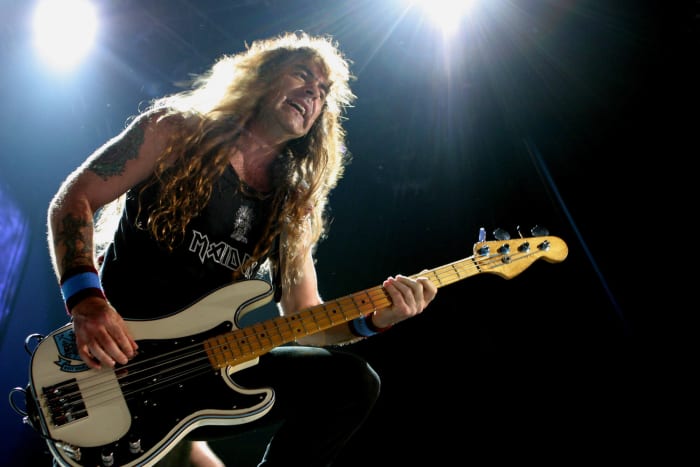
When it comes to the leader and true soul of Iron Maiden, it’s Steve Harris’ show. Sure, frontman Bruce Dickinson, or even beloved Eddie, might be “the face” of Iron Maiden, but Harris is the guy who makes the operation run. He’s the band’s principal songwriter and one of the slickest, quickest bass players in hard rock and heavy metal history. Known for his “gallop” method of playing the instrument, Harris’ work shines on Maiden classics like “The Trooper” and “Run to the Hills.” Harris has cited Phil Lynott as one of his many bass influences.
23. Chris Squire
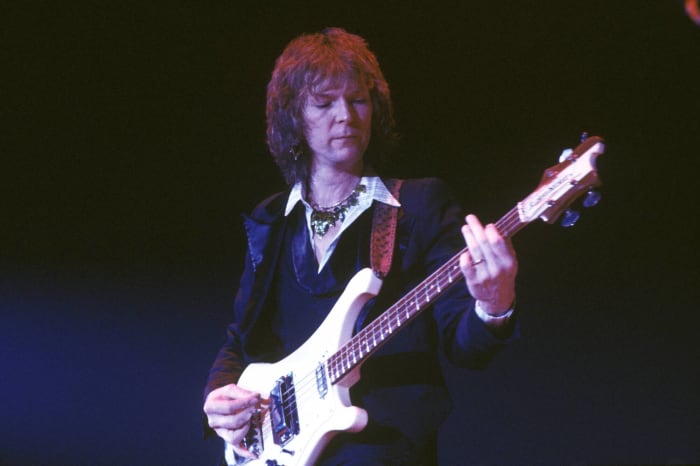
In the world of progressive rock, Squire was a relative superstar, which is saying quite a lot. He co-founded legendary prog-rockers Yes, which he was part of, in some form, for almost a half-decade. Squire was known for having a melodic touch to his bass playing, which proved highly influential to many prog rock/metal bassists that followed. He often played a Rickenbacker 4001 bass. The company came out with a special edition model in honor of the Rock and Roll Hall of Famer, who died in 2015 at age 67 after a bout with leukemia.
22. Phil Lynott
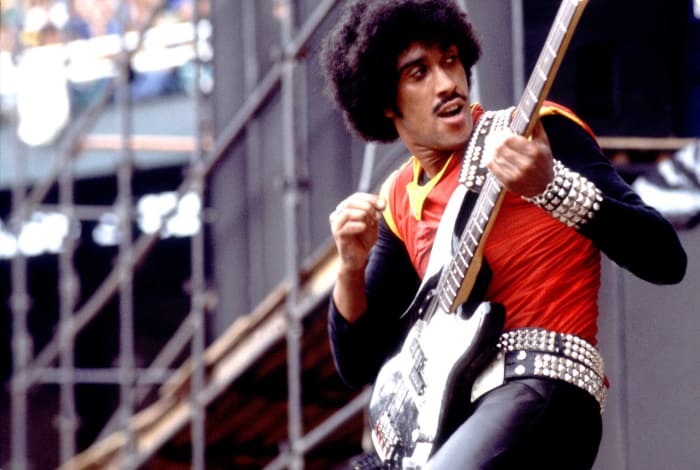
When it comes to rock icons, there is certainly a place for Phil Lynott. In addition to his talents as a brilliant singer/songwriter and rightfully praised for his role as frontman of Thin Lizzy, it’s often forgotten just how good of a bass player Lynott was during his career. He earned acclaim for his pick work on the instrument and those hard-charged solos made popular during the band’s exhilarating live sets. Lynott and Thin Lizzy are responsible for such classic rock staples as “The Boys Are Back in Town,” “Jailbreak,” and “Cowboy Song.”
21. Tina Weymouth

Tina Weymouth can hold her own among the best bass players in the world. That’s been the case for quite a long time. Weymouth’s punk-tinged, funk-infused bass lines have influenced countless women to pick up a bass and follow a path that is not foreign in the modern day. Whether we’re talking about her work with Talking Heads or her own band Tom Tom Club (with husband and fellow Talking Heads drummer Chris Frantz), Weymouth has always delivered the goods. She plays with confidence and continues to innovate.
20. Jesse Keeler
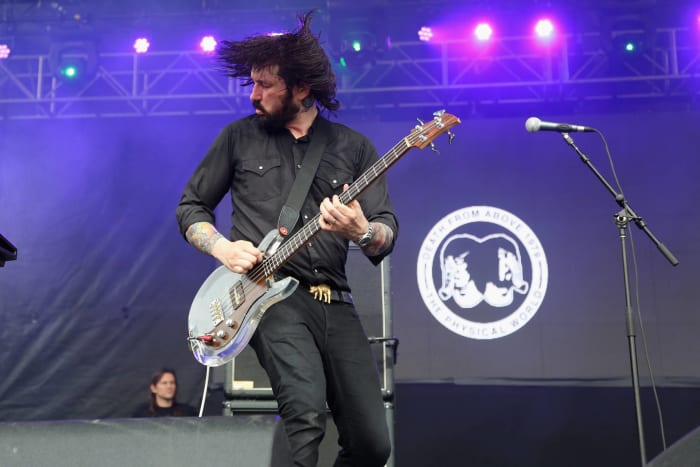
When it comes to modern-day bassists, the creative Keeler stands tall above the field. The son of musician Fred Keeler, who jammed with the likes of Bob Dylan, Jesse has made a name for himself as the driving force within Canadian dance-punk duo Death From Above 1979 and the electronic-tinged MSTRKRFT. Whether talking dance, techno, electronica, punk, or pure rock, Keeler is a dynamic musician who continues experimenting with his overall sound. Keeler is usually sporting his see-through bass, which screams and howls with an almost haunting vibe.
19. Thundercat

Thundercat, aka Stephen Bruner, is under 40 years old but worthy of a spot on this list. The master of the six-string bass, Thundercat, whose father Ronald Bruner played drums for The Temptations and The Supremes, first left his mark with thrash/punk favorites Suicidal Tendencies. However, he’s also worked with the likes of Kendrick Lamar, with whom he won a Grammy Award, Erykah Badu, and the late Mac Miller. In addition, Thundercat has released four widely-acclaimed solo albums as of 2023. He won his second Grammy for Best Progressive R&B Album for his 2020 release It Is What It Is.
18. John Deacon

Perhaps the most mysterious member of Queen. Deacon was never one for the spotlight, but with his writing and composing contributions within the confines of Queen, Deacon had his share of legendary moments. He composed hits like “You’re My Best Friend” and “I Want to Break Free” and is likely best known for two of the most iconic bass intros of all time with “Another One Bites the Dust” and “Under Pressure.” Arguably one of the most underrated members of an iconic band in music history, Deacon retired from playing in the late 1990s.
17. Jack Bruce
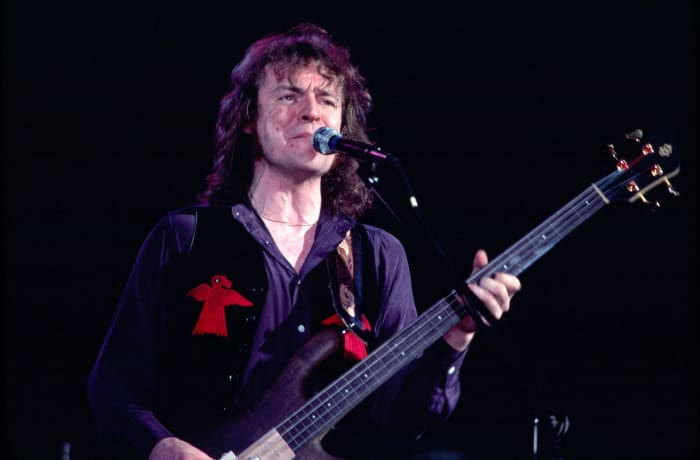
It’s safe to say that Bruce is the least prominent member of the legendary power trio Cream. That said, Bruce was more than capable of holding his own with bandmates Eric Clapton and Ginger Baker within the confines of the band that gave us iconic rock tracks such as “White Room” and “Sunshine of Your Love.” Trained in classical music and proficient in jazz, Bruce also spent time playing the blues rock associated with Cream. His ability to adapt and excel in several genres of music was a massive part of his greatness. That versatility remains one of the defining characteristics of his professional legacy.
16. Geezer Butler
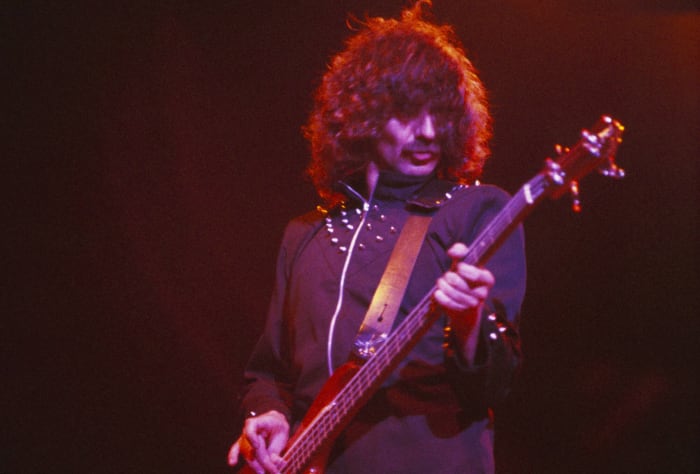
In the hard rock and heavy metal world, Butler is a downright god. Known for his early use of the wah-wah pedal and down-tuning his instrument (which would become a favorite technique among grunge guitarists and bass players), Butler is one of the most celebrated bassists within the genre. Butler, who was also the primary lyricist in Black Sabbath, has been claimed by such greats as Steve Harris, Billy Sheehan, and Jason Newstead when it comes to posing as an influential figure. Butler’s performance on the Sabbath classic “Paranoid” holds the whole song together.
15. Bootsy Collins
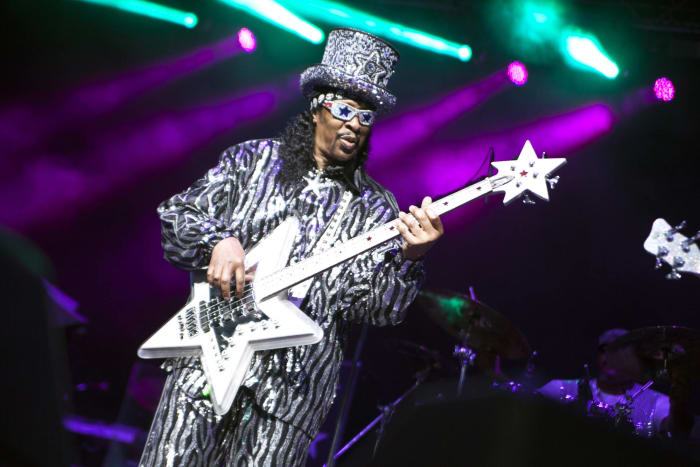
One of the special characters in music history. Collins got his first real shot at stardom while a member of James Brown’s famous backing band. He contributed to such Brown classics as “Sex Machine” and “Super Bad.” From there, Collins took that soul background and his “space bass” with a funk vibe over to George Clinton’s Parliament-Funkadelic. In addition to playing with those two juggernauts of sound, the Hall of Famer has collaborated with the likes of Talking Heads and Keith Richards. Collins has also taught the bass and has been featured in music videos and on television sitcoms.
14. Carol Kaye
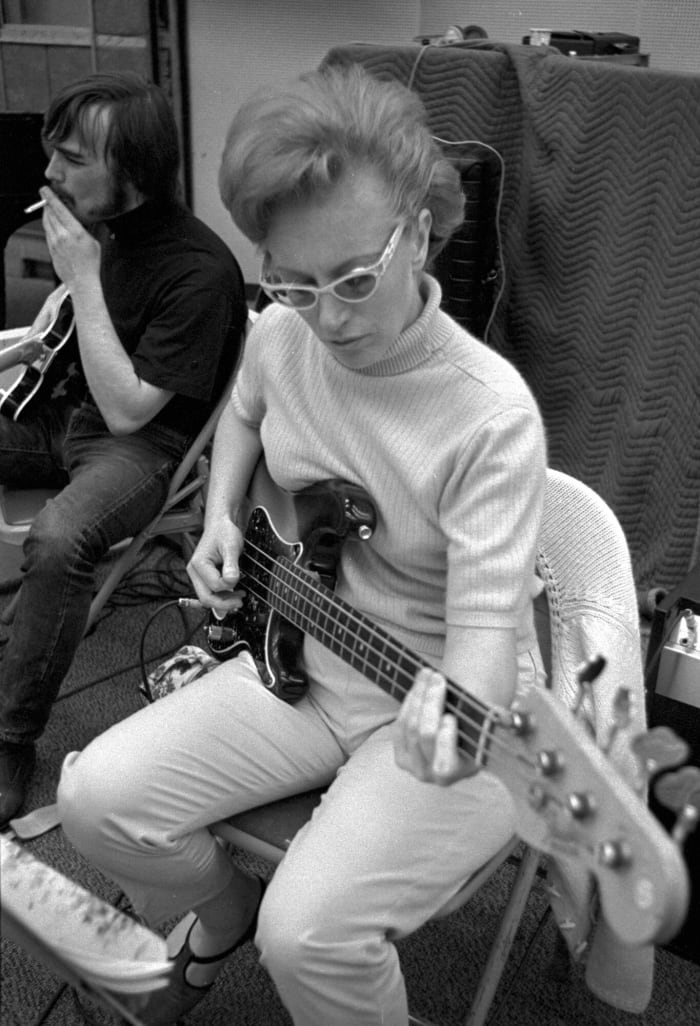
Kaye’s stellar professional music career began with the sounds of jazz and big band before becoming one of the most sought-after pop/rock session bassists and guitarists, beginning in the late 1950s. During a career that covered over a half-century, Kaye’s bass work was featured alongside music giants like Phil Spector, Brian Wilson, and Quincy Jones. A long-time teacher of the electric bass, Kaye played on Nancy Sinatra’s classic “These Boots Are Made For Walkin'” and contributed to the famed Mission: Impossible theme. How’s that for a legacy?
13. John Paul Jones

Perhaps the most interesting and undoubtedly impressive aspect of Jones’ run is the fact he’s essentially had two careers. The first came with Led Zeppelin, where he was arguably the most unheralded member of the legendary rock outfit . When Led Zeppelin disbanded following drummer John Bonham’s death, Jones ensured he kept his bass plugged in. Jones, whose professional career began as a technically sound session player capable of playing anything from blues to hard rock, had no trouble making a living while working with the likes of R.E.M, Foo Fighters, and Peter Gabriel in his post-Zeppelin world.
12. Cliff Burton
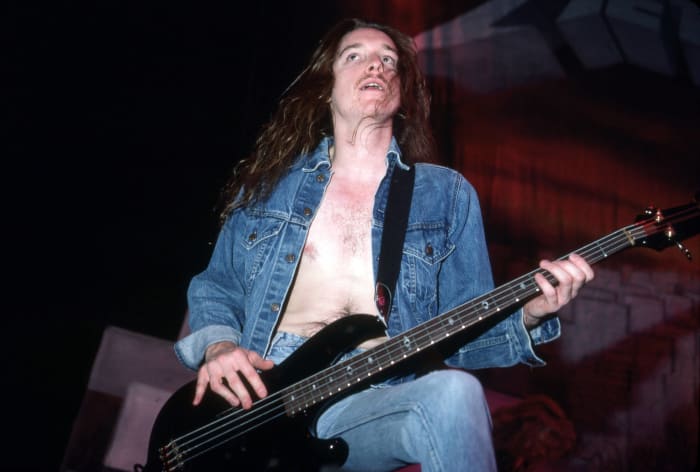
When it comes to Cliff Burton, it’s a tale of what could have been. A legend in the making with Metallica, Burton was only 24 when he was killed after the band’s tour bus crashed on an icy road in rural Sweden in 1986. In the wake of that tragedy, Burton’s legacy continued to live on even as Metallica became one of the biggest bands in the world. The hair-swinging, spaceship-sounding, bass-playing Burton was a major presence on the band’s first three albums that remain metal masterpieces. For a true taste of Burton’s greatness, listen to his work “(Anesthesia) – Pulling Teeth,” “The Call of Ktulu,” “For Whom the Bell Tolls,” and “Orion.”
11. James Jamerson

The amount of Motown legends seems endless. Notably when talking about those in the background. That’s where Jamerson comes in. A good amount of the bass work laid down during the glory days of Motown’s dominance in the pop music world can be credited to Jamerson, whose technically solid and creative playing was a signature of the label’s sound. The Hall of Famer was also one of the most prominent and revered session bassists during the 1960s and ‘70s. He played on legendary tunes such as “You Can’t Hurry Love,” “My Girl,” and “I Heard it Through the Grapevine.” Talk about legendary.
10. Donald “Duck” Dunn
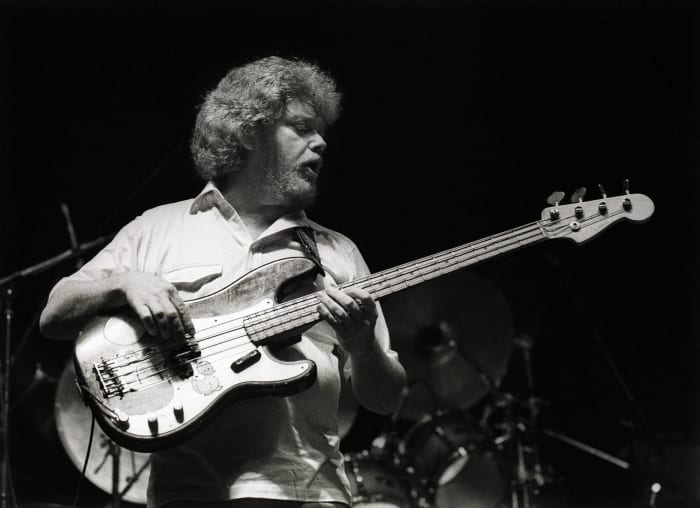
For those of a certain age and spanning older generations, Dunn might be most recognizable for his appearance in the beloved comedy The Blues Brothers. However, Dunn’s contributions as a bass player and to the music industry are much more expansive and celebrated. Dunn was long considered one of the great session musicians of all time. From his days at Stax Records until his death in 2012 at 70, Dunn was one of the most sought-after bassists around the globe. He played with the likes of legends Otis Redding, Elvis Presley, Tom Petty, Muddy Waters, and Eric Clapton. Dunn was inducted into the Rock and Roll Hall of Fame in 1992 as a member of Booker T. & the MG’s.
9. Paul McCartney

Among Sir Paul’s accomplishments with the Beatles and as a massively successful solo artist, McCartney’s talent as a bassist is often downplayed. Music fans of any real level or generation understand what a phenomenal songwriter McCartney was and still is. However, his bass playing on such Beatles’ classics as “Nowhere Man,” “Come Together,” and “A Day in the Life” were innovative for the time. The latter is also an example of just how melodic his playing can be. McCartney’s talent on the instrument is worth paying attention to the next time a Beatles tune comes on.
8. Geddy Lee
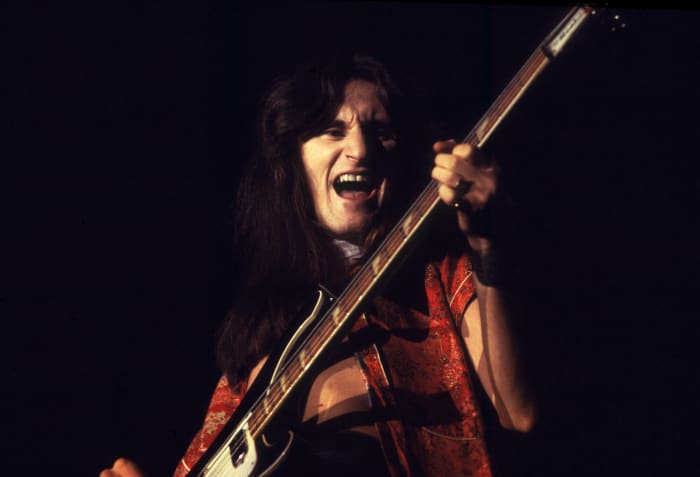
Rush’s greatness was always the sum of its individually talented three parts. Yet, Lee seemed to be the consistent face of the band. In fact, many pray to the altar of Rush, specifically Lee. While best known for his signature countertenor vocals, Lee always mastered the strings on his bass and continues to do so in life after Rush. He was exceptional in incorporating high treble to counter Alex Lifeson’s guitar, making a more fluid unity between the two instruments. Bass gods Cliff Burton and Steve Harris are just two of the countless musicians who consider Lee a major influence on their successful careers.
7. Stanley Clarke
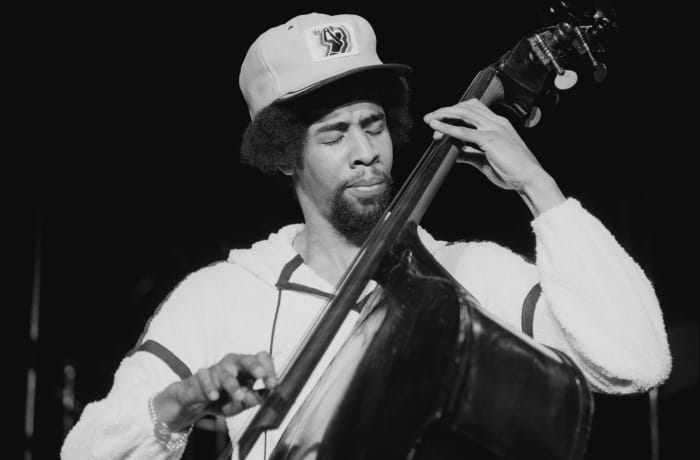
Stanley Clarke has seemingly done it all and then some during his exceptional career as a bassist. Perhaps most noted for his jazz playing, Clarke also shined on the rock side, notably in the late 1970s with Ronnie Wood and Keith Richards in the New Barbarians. Clarke, known for playing his instrument more like an upright bass, has the almost uncanny ability to give his guitar an almost percussive sound. The multiple-Grammy Award winner has also scored countless projects for television and film, notably Pee-Wee’s Playhouse and Boyz n the Hood.
6. Victor Wooten
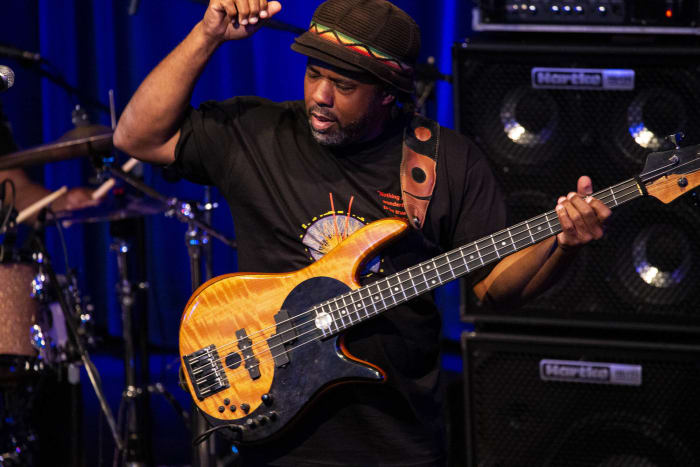
Speaking of Stanley Clarke, Wooten is a good buddy and colleague of the aforementioned bass legend. A multi-Grammy Award winner, Wooten has long been the backbone of the jazz-infused Bela Fleck and the Flecktones but worked with Clarke in the supergroup SMV. One of the most sought-after bassists in the world, Wooten also showcased his harder, edgier side while working with the metal group Nitro. Ridiculously talented on both the fretted and fretless bass, Wooten has also excelled while playing the double bass and even the cello. Truly one of the most gifted and appreciated musicians that should receive more mainstream recognition.
5. Jaco Pastorius
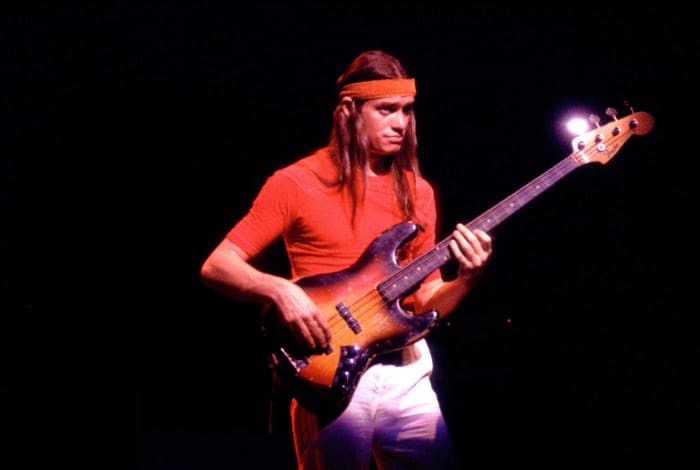
Saying Pastorius is the greatest jazz-based bassist of all time would not be a stretch. Unfortunately, Pastorius’ off-stage demons seemed to get in the way of sustaining that greatness. In addition to his drug addiction, Pastorius dealt with bipolar disorder and harbored a nasty temper. Pastorius, who collaborated with the likes of Joni Mitchell and Ian Hunter, died in 1987 at 35 due to injuries suffered in a bar fight, ending a celebrated musical career where his innovative funk harmonies on the electric bass are still an influence on bassists to this day.
4. Larry Graham
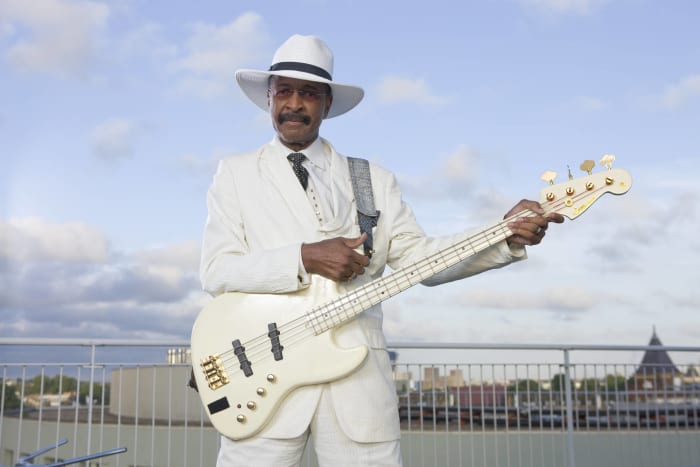
In addition to being a legendary bass player, Graham is renowned for his baritone vocals. However, we’re all about the bass, and Graham’s contributions in that department are undeniably historical. Considered the inventor of the slap technique of bass playing, Graham opened the door to an innovative way of mastering the instrument. From there, the slap became a staple among funk, soul, and R&B bands. Graham was a key member of Sly and the Family Stone and fronted his own Graham Central Station. The Hall of Famer is also the uncle of popular rapper Drake.
3. Les Claypool
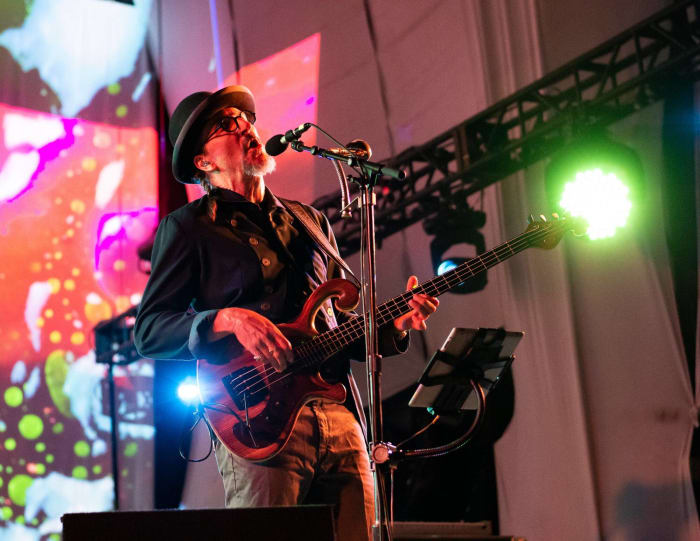
When it comes to characters within the world of music, Primus’ Les Claypool is among the best. Quirky and eccentric, Claypool is one of the more versatile bassists. He slaps, taps, and wails while having a good time. Perhaps Claypool’s shining moment is still his performance on the Primus classic “Jerry Was A Race Car Driver.” In a well-told story, Claypool auditioned to be Metallica’s bass player following the aforementioned Cliff Burton’s death. However, the band thought he was simply too good for the job, and Claypool knew he would not be able to showcase his true talent.
2. Flea

The pride of Los Angeles’ Fairfax High School, where the great, influential trumpeter Herb Alpert also attended years earlier, Flea (aka Michael Balzary) has earned icon status — even beyond his tenure with the Red Hot Chili Peppers (his performance on the band’s cover of Stevie Wonder’s “Higher Ground” is sensational). He’s also one of the most versatile bassists around and willing to play with anybody, anywhere. Flea’s played with the likes of Jane’s Addiction, Johnny Cash, and Tom Waits. Not to mention, he’s also among rock’s great characters and noted for his remarkable stage presence, clothed or not.
1. John Entwistle
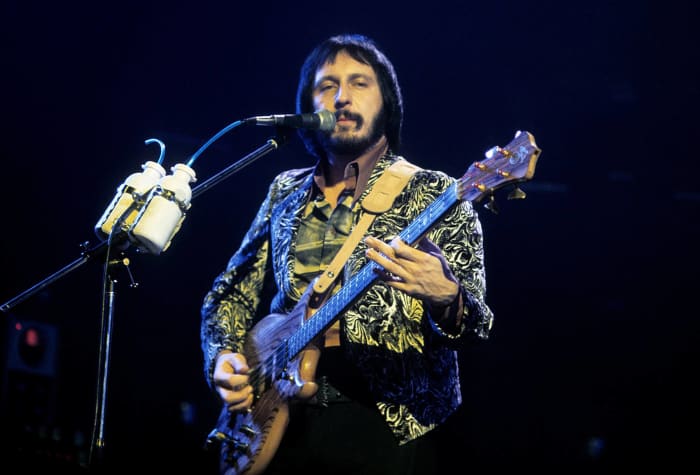
Affectionately known as “The Ox.” It’s never an easy task to single out the best on such a list, but when it comes to playing the bass, Entwistle takes the crown because he could do just about anything with the instrument. The Who’s sound had a wide and expansive range and seemed to change — often for the better — with the times. Entwistle was more than able to keep up and excel. His high-treble, high-volume sound was synonymous with the band’s success. “Boris the Spider” and “My Wife” are just a couple of the stoic Entwistle’s major contributions to The Who’s legacy, while his underrated performance on “Won’t Get Fooled Again” is a true hidden gem.
Leave a Reply